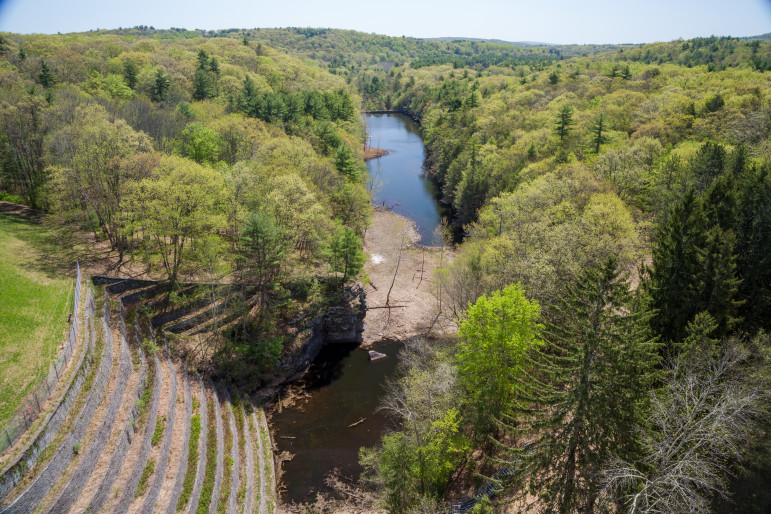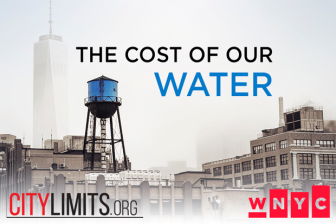
Isaak J. Liptzin
The city’s Land Acquisition Program has strict guidelines on what it can and can’t purchase. Parcels smaller than 10 acres are verboten. But in the post-Irene program, that’s not the case.
Four years ago Tropical Storm Irene devastated communities in the Catskills. After the storm, many homeowners who sustained flooding and other damage accepted FEMA buyouts. But not everyone. Some homeowners that sustained flood damage did not qualify or decided not to take a FEMA deal.
In the past couple years, Catskill residents — backed by the Coalition of Watershed Towns, an advocacy group that has been a fierce critic of the city’s land purchasing and development regulations in the watershed — pushed the city’s Department of Environmental Protection to offer its own buyouts. The DEP was itself concerned about future floods affecting the water supply, so last spring it set aside $15 million for a flood buyout program. The program is still in development, according to the DEP, but will be underway this year.
While it may not have a serious impact on the total acreage of land the city acquires in the Catskill/Delaware watershed, the land it buys in this program is significant because all of it is located near water.

All this week, a joint City Limits-WNYC reporting partnership will broadcast and publish stories about New York City's incredible water system and the challenges it faces.
“We think they offer valuable protection because the next flood, whatever’s in the garage, whatever’s in the basement is not ending up in the reservoir,” said David Warne, the assistant commissioner of the DEP’s Bureau of Water Supply.
The program allows the city to get properties that previously were off limits. The city’s Land Acquisition Program has strict guidelines on what it can and can’t purchase. Parcels smaller than 10 acres are verboten. But in this program, that’s not the case.
“This is the first time the city’s ever been able to buy flood-prone properties,” Warne said.
Following Irene, many flooded homeowners in the Catskills took FEMA buyouts.
Middletown Town Supervisor Marjorie Miller says she can’t blame people for accepting a buyout, but wishes relocation within the town was part of the program because the town is getting smaller and smaller.
“It feels like that process is so inevitable where they own so much of the town that there’s not a lot left. And because we experience flooding that’s so devastating, we’re losing, I think 27 properties in the town to FEMA buyouts. That’s another psychological factor … obviously we don’t want them living in a flood zone, but we’re losing more properties and where do our people go?”
DEP’s Warne says it’s too early to guess how many people will take buyouts and this will be a long process.
“The pattern of development in the floodplains took decades, generations really, to get to its current state and I view the flood buyout as a long-term program. It’s not as though we’re going to move everyone out of the floodplain in two years or three years or five years. It’s a long-term component of our overall source water protection strategy to deal with this class of properties,” he said.
Dean Frazier, Delaware County’s commissioner of watershed affairs, said he thinks the flood buyout program is one positive thing to come out of the city’s land buying in the Catskills. He said the DEP responded positively to communities asking for such a program. Still, he lamented the paperwork that comes with dealing with New York City.
“Now we’re stuck in this bureaucratic maze,” he says.








